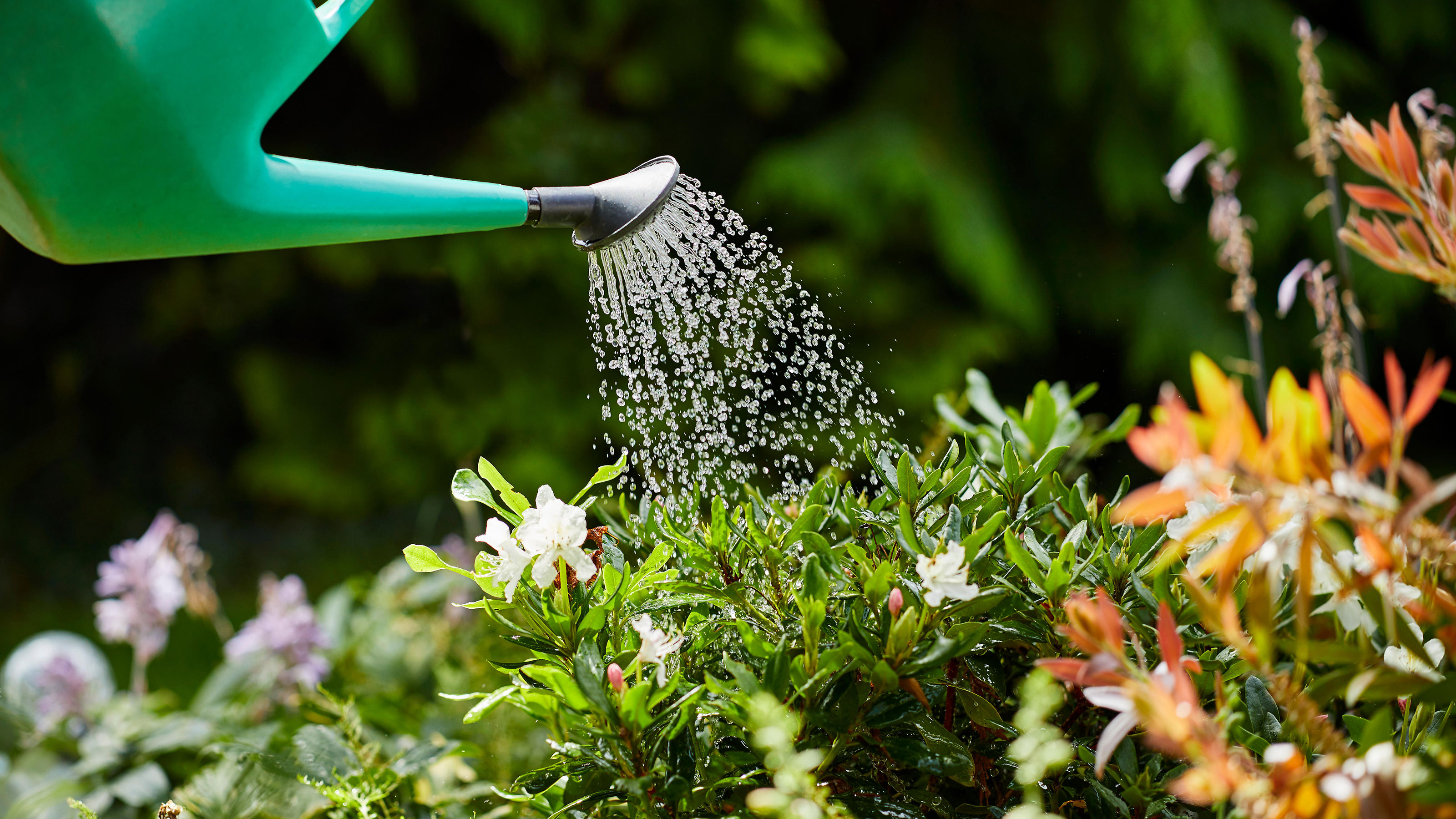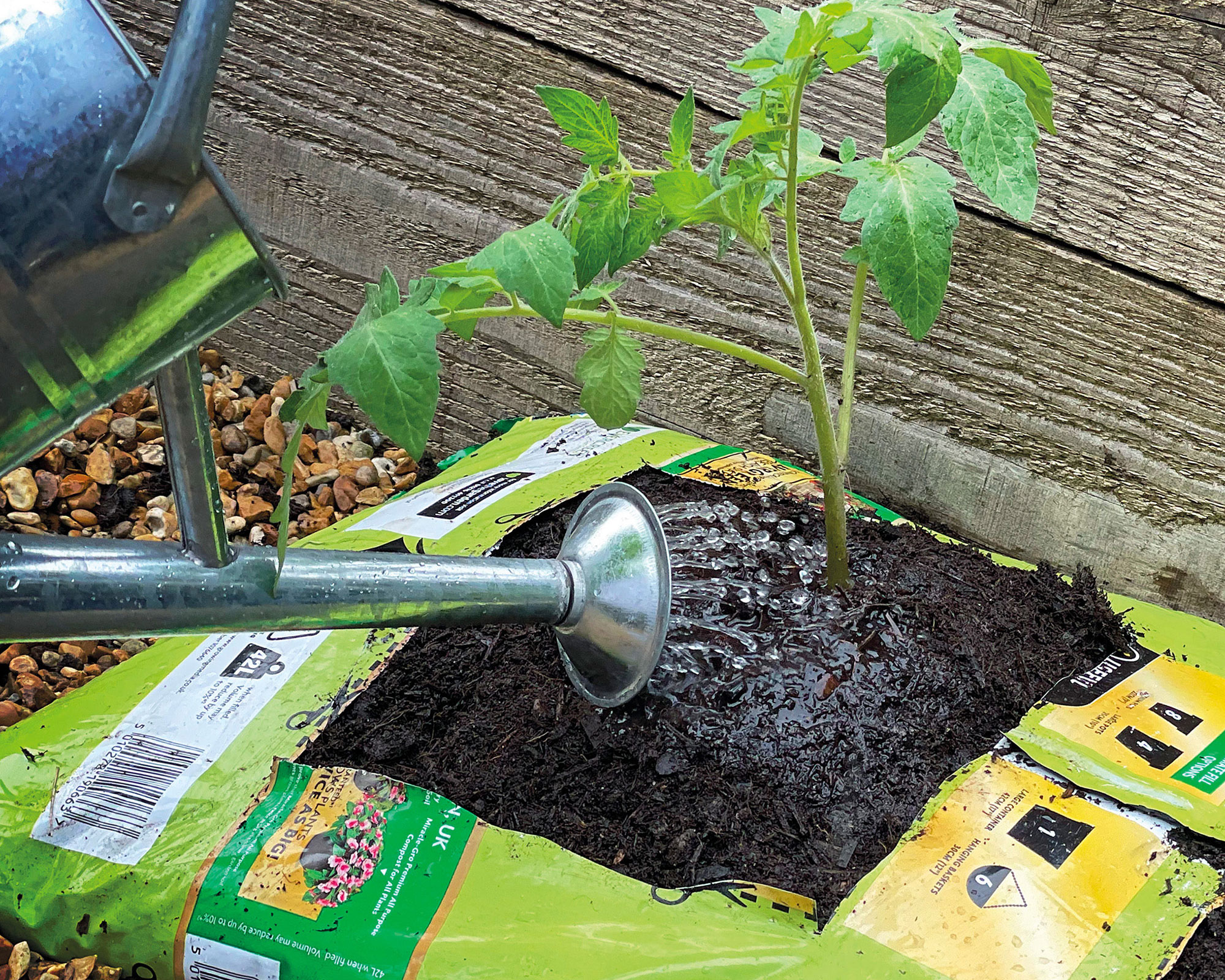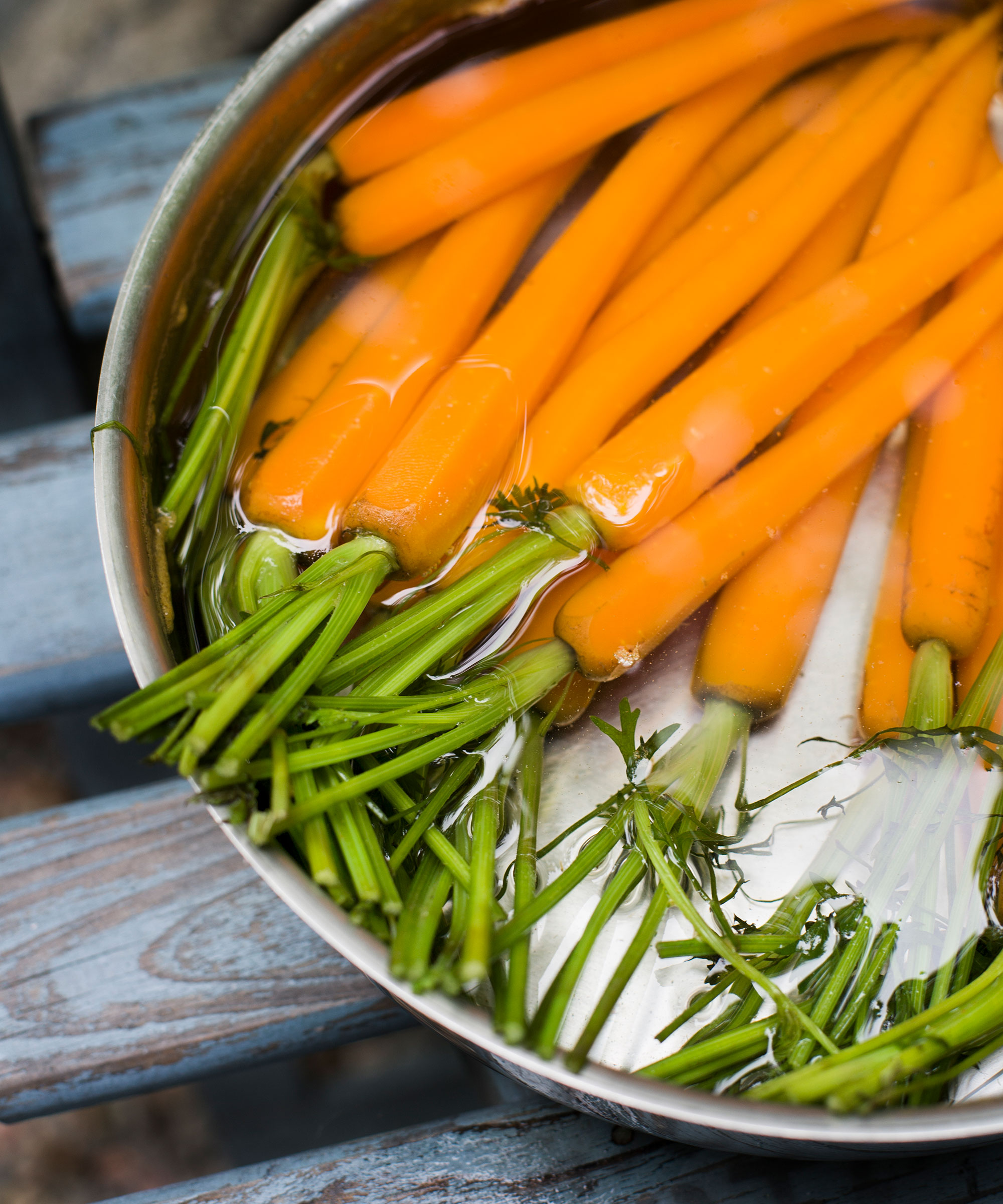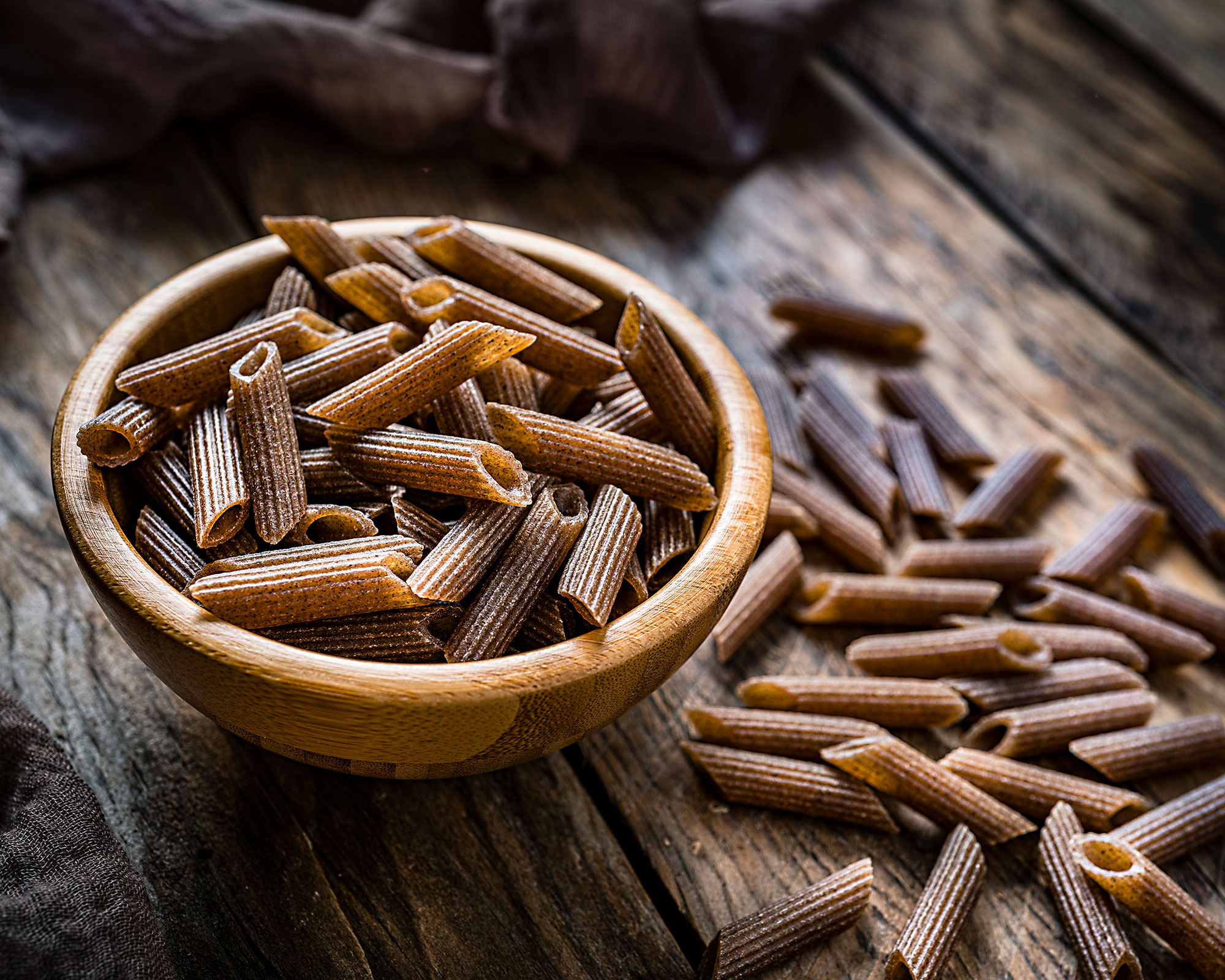This is how to keep your plants watered during a hosepipe ban, according to an expert
Hosepipe bans and water shortages mean we’re having to get inventive about the water we use in our gardens


When every drop is precious, and millions of UK homes are now under a hosepipe ban, don’t even waste the water you’ve cooked your veggies in, is the advice of Nat White, an expert in home, garden and DIY at trades comparison website Rated People.
'We’re experiencing extended periods of hot weather and little rainfall,' she says. 'But did you know that the water you’ve used to boil vegetables can contain minerals so it can be great for watering plants, including your own fruit and vegetables?'

Which vegetable cooking water is best for plants?
The nutrients which come from carrots and potatoes during cooking are especially good to help protect plants from heat during an extended heatwave, says Rated People's Nat White.
'Carrots contain potassium and calcium, and potatoes contain potassium, phosphorus, magnesium and iron. These are common nutrients often found in fertilizers.
'Potassium is said to increase root growth and improve drought resistance. Calcium provides structural support to cell walls. Phosphorus enables energy transfer and photosynthesis, magnesium is used in chlorophyll production and enzyme regulation, and iron is used in the synthesis of chlorophyll.'
So using your waste vegetable water will not only help to keep your plants hydrated, it will also act as an environmentally friendly fertilizer and promote healthy bacteria population within the soil. Healthy soil retains moisture more easily, so with the current lack of rainwater, this is another plus.

What else is good?
If you cook wholegrain pasta and rice, save and reuse this water too. The starches it contains are also great to encourage bacteria in the soil, says Nat.
The water will also hold generous traces of manganese, selenium, copper, phosphorus, all of which are good nutrients to promote healthy plant growth.

Drop the salt
Always allow cooking water to cool thoroughly before using it for watering purposes. This is for your own safety and to avoid damaging tender stems and leaves.
However, do use it quickly, especially in hot weather; if you leave it to stand for too long bacteria will multiply, so within 24 hours would be good.
Also, don’t cook vegetables with salt. It’s not recommended for health reasons anyway and can be damaging to plants.
Will you be trying this garden water saving tip this summer?

Jayne Dowle is an award-winning gardening, homes and property writer who writes for publications including Sunday Times Home, Times Bricks & Mortar, Grand Designs, House Beautiful and The Spectator. She was awarded the Garden Journalist of the Year accolade at the Property Press Awards in 2021.
